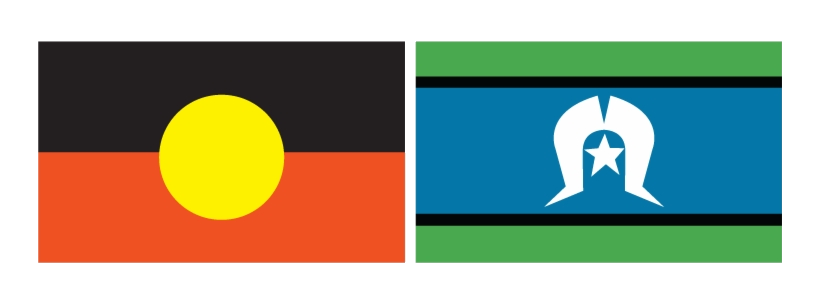Articles
- Six Months post Canada: How Sport Is Keeping Team Australia Alumni Connected and Strong, opens in a new tab, Sara Pizzinato, Invictus Australia, (13 August 2025). For many in the defence community recovering from injury, adaptive sporting events like the Invictus Games can open the door to renewed purpose and possibility through sport. Findings from the Beyond the Finish Line report, commissioned by the Invictus Games Foundation and Forces in Mind Trust, support this idea, suggesting that an Invictus Games can be a powerful catalyst for post-traumatic growth, renewed personal strength and the belief in new possibilities. Crucially, the report also confirmed that the most significant long-term benefits are realised when participants are supported to remain engaged in sport beyond the competition itself. Six months on from the Invictus Games Vancouver Whistler 2025, we spoke with members of Team Australia to learn how they have maintained this connection. Some have returned to sports they once loved, others have embraced new challenges, and some have stepped into roles that allow them to inspire and support their communities. However, what these alumni have in common is how sport is enabling them to continue to build on the confidence, connection and sense of purpose fostered through their Games campaigns.
- Invictus Australia’s first post-Games camp supports veteran wellness, opens in a new tab, Sara Pizzinato, Invictus Australia, (2 June 2025). For the first time, Invictus Australia has led the development of a Beyond the Games Decompression Camp, in partnership with the Australian Defence Force, dedicated to checking back in with Team Australia competitors post the Warrior Games 2024 and Invictus Games Vancouver 2025. The ethos of this camp was based off findings of the Beyond the Finish Line report, led by Dr. Celina Shirazipour and commissioned by the Invictus Games Foundation and Forces in Mind Trust. The research confirmed that while events like the Invictus Games can serve as a powerful catalyst for recovery, the greatest long-term benefits occur when participants are supported after the Games. This camp brought that insight to life, offering not just a place to reflect and reconnect, but the tools, networks and pathways participants need to continue engaging in sport, whether through ongoing competition, coaching, volunteering or recreational participation.
- Fallen Olympian honoured with graveside ceremony in France, opens in a new tab, Australian Olympic Committee, (18 July 2024). Olympians Kaarle McCulloch and Michelle Ford have honoured the memory of the late Cecil Healy, the only Australian Olympic gold medallist to die in combat. Cecil Healy, the gold and silver medal winning swimmer from the Stockholm 1912 Games was gunned down at the Somme in France on August 29th, 1918 - just 73 days before World War One ended.
- Veteran sport a social connector to build mental wellness, opens in a new tab, Vanessa Bernardo, Invictus Australia, (accessed 6 November 2024). The Australian veteran community is an important and significant piece of the nation’s identity, deeply rooted in the rich tapestry of our history, values, and culture. For some veterans, the process of returning to civilian society following service may encompass difficulties, such as reestablishing a sense of purpose, finding suitable employment, acclimating to different routines and expectations, and rebuilding social connections, particularly those who are wounded, injured or ill, or involuntarily discharged.
- Can sport combat alarming defence statistics? New research sheds light, opens in a new tab, Sara Pizzinato, Invictus Australia, (May 2024). Multiple research papers suggest that the positive benefits of sport and social connection could translate to this group in a beneficial way, a concept that underpins Invictus Australia’s grassroots and international programs, collaborative approach and focus on building supportive communities. With transition being identified as both a cause of this problem and an opportunity to improve the wellbeing of veterans, the positives of sport and social connection are beneficial to veterans at all stages of their Defence career.
- Invictus Games participants saw positive benefits from competitive sports according to new research, opens in a new tab, Forces in Mind Trust, (7 May 2024). The evaluation of competitors and non-competitors is the first study on the long-term benefits of international competitive sports in wounded, injured and sick serving and former personnel.
- Sport and Australian military life, opens in a new tab. Department of Veterans’ Affairs, Anzac Portal, (November 2021). For Australians, the connection between sport and military service dates to the colonial era. Through more than a century of war, conflict and peacekeeping operations, military personnel have found enjoyment, exercise, competition and release in sport. Sport reaches across cultural and linguistic boundaries, bringing together people who may have little else in common, helping service personnel on deployment establish relations with their counterparts from other nations and with local civilians. Just as today's service men and women participate in or watch sporting contests at every stage of their military careers, so generations before hold memories of sporting moments as some of the happiest of their service lives.
- War and sport, opens in a new tab, Tasmania. Department of Prime Minister and Cabinet, Centenary of ANZAC, (2014?). The Centenary of ANZAC provides an opportunity to tell remarkable stories of the importance of sport to Australians serving overseas, as well as the war-time experiences of some of most loved sporting stars. Through the Centenary of ANZAC website, you may view stories about some of Tasmania’s top sportsmen and women who have played an important role in Tasmania’s military history.
Access to resources Where possible, direct links to full-text and online resources are provided. However, where links are not available, you may be able to access documents directly by searching our licenced full-text databases (note: user access restrictions apply). Alternatively, you can ask your institutional, university, or local library for assistance—or purchase documents directly from the publisher. You may also find the information you’re seeking by searching Google Scholar, opens in a new tab.
























